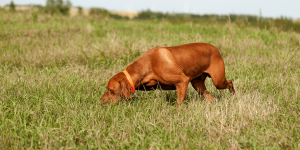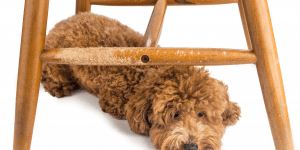Separation Anxiety in Dogs.
The term separation anxiety is often overused, or misdiagnosed. In its true form, it can be a serious condition and needs to be properly diagnosed by a canine behaviourist. However, many dogs exhibit a few of the symptoms in a less severe manner. This can prove problematic for dogs and their owners. This Holidays4Dogs article will look at separation anxiety in dogs, symptoms and treatment.
What are the signs of separation anxiety?
Typical signs include:-
Excessive panting, or salivating, as you prepare to leave the house.
Constant pacing, barking, refusal to eat treats or food unless the owner is present.
Chewing, digging, barking, or howling.
Destruction and inappropriate toileting in the house.
In extreme cases, vomiting can occur.
Dogs who are potentially likely to suffer with separation anxiety, may be more likely to follow their owner around the house and may become over attached to one person. In addition, they may suffer anxiety in other situations such as, meeting unfamiliar dogs, or people.
Causes of separation anxiety.
There are several possible causes for this type of behaviour. Dogs with not enough mental, or physical stimulation, can become distressed when left alone.
Another cause can be fear. They may be reacting to a previous bad experience such as a thunderstorm, fireworks, or strangers approaching the house while they are alone. Even strange noises within the home environment such as a new boiler, or doorbell sound, can trigger a fearful response which the dog associates with being alone.
Addressing the problem;-
Dogs should never be punished, no matter what they may have done while you were away. They will not associate your telling off with the actions they probably carried out some time ago. If your dog suffers from separation anxiety, shouting at him, or her, when you return may make matters worse.
Many people attest their dog “knows he has done wrong” or, “looks guilty”.
However, this is actually the dog reacting submissively to the owner’s cues, i.e. raised voice. In fact, shouting at the dog you may make the situation worse, since as the dog will start to fear the owner’s return – in addition to being left.
Exercise.
Firstly, ensure your dog is exercised well before leaving the house,  as this will help to tire him, or her, out and remove any excess energy.
as this will help to tire him, or her, out and remove any excess energy.
Dog walking games can help to keep your dog focused and keep him mentally interested. Sniffing is also good for helping the dog to stay relaxed.
If your dog feels calm and relaxed before you go out, he may be less inclined to display separation anxiety behaviours.
If your dog is nervous, or reactive, try to make sure your dog has good experiences while out and about. It can also be useful to feed them a starchy, carbohydrate meal about half an hour before you go.
Make sure your dog has a den, covered bed, or other place where they will feel safe.
Vary your routine wherever possible and try not to make a big deal out leaving the house. No long good-byes.
Something to do.
Remove anything the dog might be liable to chew. This should include anything from shoes, children’s toys, valuables, clothes, bedding, or electrical wires. Provide the dog with some suitably robust dog toys. Puzzle toys help bored dogs to actively use their brains in order to receive their reward.
It can be helpful to leave a radio on quietly in the background. This will help to drown out other noises that might upset the dog left alone.
Pet pheromones are also said to help dogs with mild to moderate separation anxiety. You can read more about this in our other Holidays4Dogs article here. Medication would be a last resort, but if you feel the anxiety is particularly chronic, speak to your vet about this.
Holidays4Dogs do not generally accept dogs with known behavioural issues. However, we do understand that some dogs may take a little more time to settle. This is especially true of rescue dogs. If you would like to discuss your home-from-home dog boarding needs, please do give us a call for a friendly chat.
If your dog has particular needs and is not happy about being left alone, we do have a few carers who are prepared to be available for guest dogs 24/7. Do give us a call.



